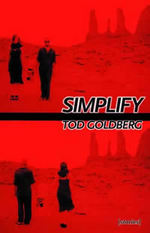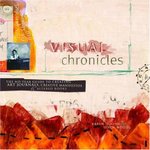Ken Levine has a terrific post today on the importance of "room chemistry" in putting together a writing staff.
When putting a writing staff together I always think of the great line
from either Bob Schiller or Bob Weiskopf – what six people would you
like to be stuck in a Volkswagon with driving across the country?
Besides talent, so much depends on chemistry because you spend so much
time together in close quarters under enormous pressure. By the end of
the season even the closest staff starts getting on each other’s
nerves. It’s like, take a fifty year marriage and compress it into
eight months.
He is so right. Writing talent is only one part of what gets you hired on staff — just as important is how you will mix with the other writer and whether you’re someone the showrunner will enjoy hanging out with. There’s a freelancer we used a few times who was great at crafting stories and turning in a solid first draft — but in a room he was this incredible blackhole that sucked the soul right out of you. Ten minutes with him felt like ten decades… which is why he’s never ended up getting on a writing staff despite a long list of freelance credits.
Ken catalogs some of the typical writing room personalities (Dr. No, Mr. Let’s-Go-Back, etc.) and he’s spot-on. He misses a couple, like "Mr. Out-of-Sync," the writer who is never, ever, in step with the flow of the room or the direction of the story — his suggestions, his jokes, his clues, etc. never fit. They aren’t bad suggestions, they just aren’t right for the way the story or scene is flowing. It’s like he’s doing a different episode or, worse, an entirely different series. The problem is, whenever he pitches one of his out-of-sync ideas, it knocks everyone off track (though, to be fair, some times when explaining to Mr. Out-of-Sync why his suggestion is so so wrong, it does lead us to a clever solution).
Another one is Mr. Cliche — every one of his suggestions is so painfully familiar, so incredibly over-done, so lazy, that you just want to leap across the room and strangle him (which, in itself, is a cliche).
Mr. Cliche’s close cousin in the writing room is Mr. Steal From the Movie I Saw Last Night. In one case, Mr. Steal From the Movie I Saw Last Night was the showrunner. He mapped out the season on the wall with index cards. Each index card referenced a recent or classic movie. For instance, let’s say the show was called DEFECATOR. The cards read like this: "Defecator’s Dirty Dozen," "Defecator’s Deliverance," "The Defecator’s Million Dollar Baby," "Brokeback Defecator," etc.
Of course, I’m none of those people. Then again, I’m sure Mr. Out-of-Sync thinks the same thing…and my constant fear is that he is me.


